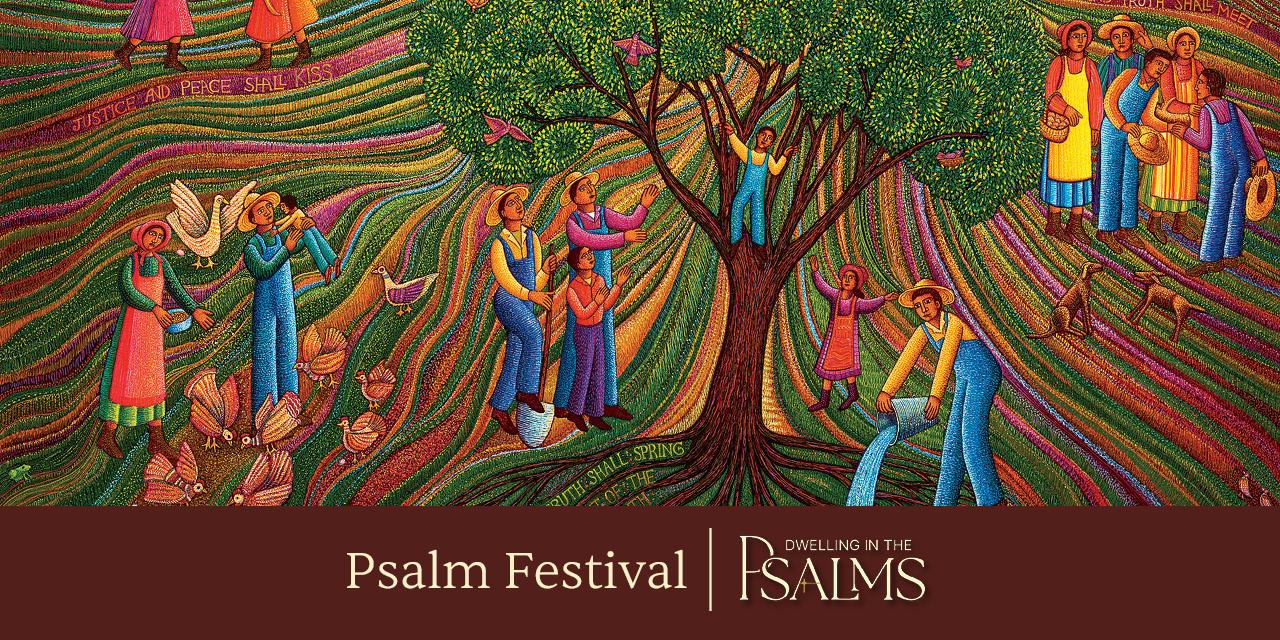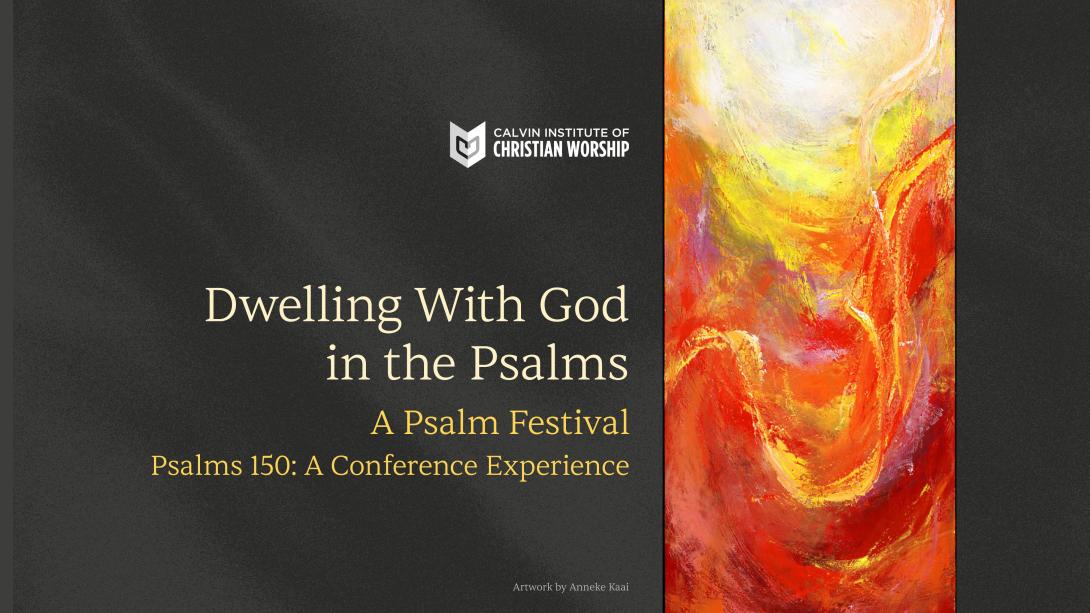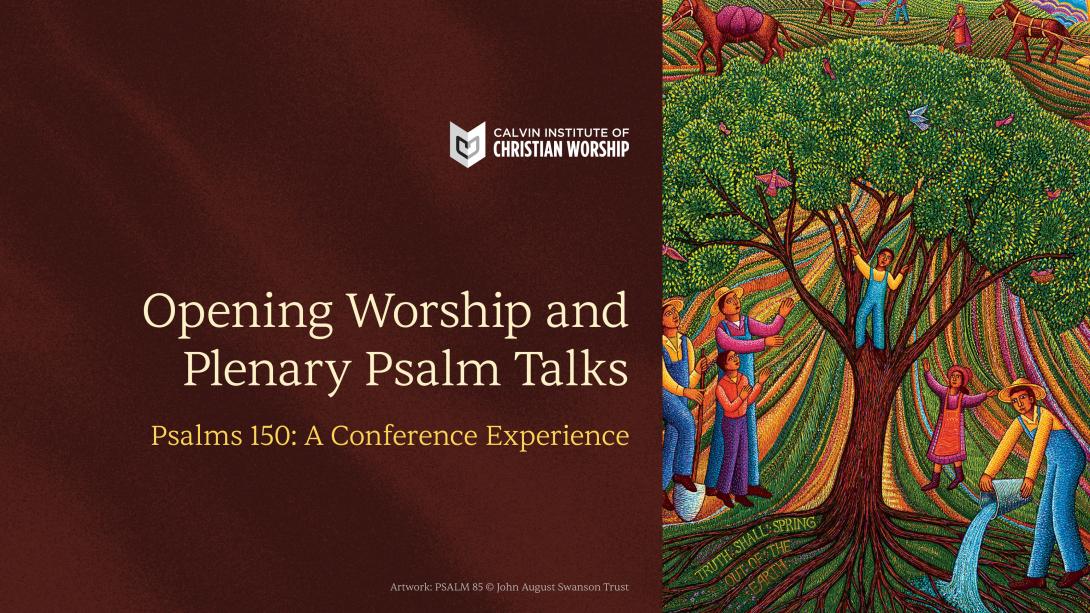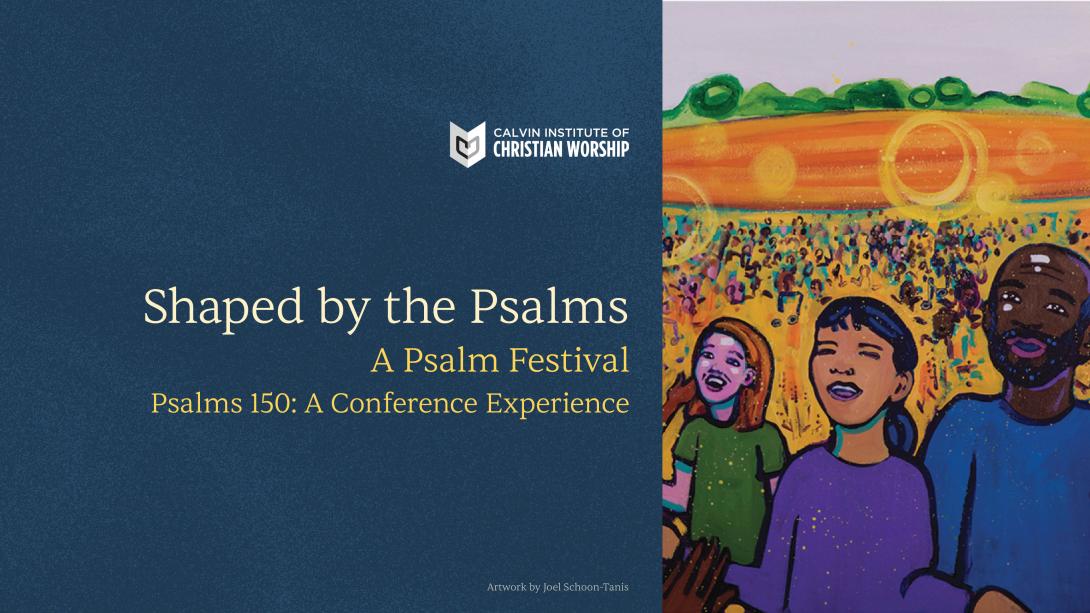(This episode is available as text ONLY)
Kristen Verhulst: Amy, thanks so much for being here today on the podcast. To all who are listening, I am going to be talking today with Amy Adamczyk, a professor of sociology at John Jay College of Criminal Justice and the programs of doctoral study in sociology and criminal justice at the Graduate Center of the City University of New York. And Amy is the coauthor, along with Christian Smith, of the book Handing Down the Faith: How Parents Pass Their Religion on to the Next Generation. Amy, thanks so much for being here.
Amy Adamczyk: Thank you. Thanks for having me. I'm really excited to be able to talk with you.
Kristen Verhulst: Would you share with us the research story behind the book? Why did you come to ask these questions?
Amy Adamczyk: Absolutely. So a number of years ago, Chris had been doing work on adolescence and the role of religion as they transition from adolescence into young adulthood and then later on into regular adulthood. And religion was key for these developments. He studied how religion changed as they transitioned from one stage of development into the other and wrote some research in this area. I, too, had done a lot of work on young people and how religion shaped their attitudes, beliefs, and behaviors. We had come together for some other reasons, and we started talking about this project. He asked me first if I wanted to be involved with the interviews. We interviewed over two hundred parents from a wide range of different religious backgrounds in different parts of the United States in a couple of different languages. I did a number of interviews here in the New York City area where I live. After that we connected, and he said, “Well, we should write this book together. This is the book [in which] we want to present our major findings from what we found. Do you want to be involved?” We both had this interest in young people and the role of religion in shaping their behaviors and ideas and beliefs. So that's what sort of kicked this off. We ended up writing the book together and publishing it together, and it's really been a fun experience. I very much enjoyed it.
Kristen Verhulst: Terrific. What was your primary question? What were you really driving at to uncover in the research?
Amy Adamczyk: . . . When Chris was doing his research on young people, the missing link, or the thing that we knew was important but [for which] we weren't able to get as much information as we wanted, was the role of parents for all of these young people, and you see this in my research and in other people's research who do work on young people. Parents are often the most important force in young people’s lives for a range of different things, including views about religion. We had talked to the young people about religion, but we hadn't spoken to the parents, and we didn't have much sense of what were the parents trying to do, what were their goals, what were their hiccups, what were the challenges, what informed how they thought about passing on religion to their children. So that was the puzzle we wanted to solve. There had been very little work in this area. There were a few other studies that suggested some ideas for how parents might be shaping young people, but there wasn't anything that was at this scale where it was across the entire United States, involved hundreds of interviews, and looked at not just Christianity, but Muslim parents, Hindu parents, Buddhist parents, conservative Protestant parents, Catholic parents, [even] Catholic parents who only spoke Spanish. So this book covered a wider range of different voices and perspectives about how parents are trying to pass on religious belief to their children.
Kristen Verhulst: And then you had two major other studies to draw in the more quantitative data.
Amy Adamczyk: That's right. So in addition to these qualitative interviews, which we did across the United States, we also had access to these other databases, so we were able to do a lot of analysis so that our study could be more far-reaching than it otherwise would be. We could say, Hey, we found this in the interviews. Do we see this in the national data? Are we still finding these things? Or, in the nationally representative data, if we thought, Hey, there's something going on here related to parenting styles. Let's unpack that in the qualitative interviews, because it seems that certain parenting styles matter more than others in transmitting religious belief. So the two types of data really worked well together and were able to give us, I think, a more complete picture of what was really happening.
Kristen Verhulst: [The book has] only been out for about a year. But what are you learning already from the reviews and from the readers? What are you hearing back?
Amy Adamczyk: People seem really excited about it. We've done a bunch of interviews and a bunch of podcasts. We've had parents reach out to us. We've had people from congregations reach out to us. We've had pastors and other types of religious leaders reach out to us. I think it kind of confirms that we really didn't have a lot of this information beforehand. So people are talking about it, and I think they're thinking about it. I think that there are some holes in our understanding of how parents transmit religious belief that this book fills. At the same time, I think there's some real, practical ideas that parents and congregations can use to move forward. The book fits both of those places, and I think that's been really valuable. This was a little bit surprising, but the book was a finalist for Christianity Today's 2022 Book of the Year Award for the Marriage and Family category. As you know, Christianity Today is not an academic magazine. It's an evangelical Christian periodical. So we were a little surprised because the book is very much an academic book. But we were happy that people were paying attention to it and that people seem to be finding it useful. So hopefully we'll keep getting that feedback, and if there's more that we can do in this area, I think we'd be open to it.
Kristen Verhulst: That's great. Congratulations. So to this practical category, what was a common assumption out there about faith formation and religion in family life that the research broke apart or undid?
Amy Adamczyk: As I mentioned, we interviewed parents from a wide variety of different religious backgrounds. One of the things I think was a little bit surprising is that parents did not differ that much in their fundamental background assumptions about how and why to raise their children religiously. They often used the same techniques. In fact, we interviewed an additional twenty or thirty parents who weren't religious at all, and in passing on their values they were using the same techniques. So it wasn't like, Oh, the Muslim parents are so different from the Mormon parents. There were a lot of similarities, and I think we were surprised at just how much similarity there was across the various religions. Where parents tended to differ was if the parents wanted to pass on higher levels of religious beliefs, it was less about the religion per se and more about the different levels.
Again, one of the surprising findings [was that] a lot of parents just wanted to transmit moderate levels of religious belief. We had some parents who wanted to transmit high levels, but that wasn't the norm. A lot of parents were concerned about extremist views. They were concerned about passing on something that would be problematic for their child. They just wanted moderate levels—not too little, not too much; there was some middle ground that they saw as being really useful. And part of that is related to the fact that religion for many of these parents was a sort of tool that they wanted to pass on to their kids to make their kids’ lives better. Parents were very concerned about their children leading a happy, good, successful life here on Earth. I don't want to say they weren't concerned with things in the afterlife, but it wasn't as much focused on that as maybe it was fifty years ago. It was much more about the here and now today. How do I lead a good and happy life, and what role does religion have in helping me do that?
Another thing is that a lot of parents held very modest expectations of their churches or temples or synagogues or mosques. They did not see these places as being the key places where their children were going to learn about religion. Their children were going to learn about religion in their homes, not necessarily at these congregations. The congregations were really just there to help the parents. Long gone is the era when you [would] drop your kid off at church and you go home and then pick them up later on, assuming that they got their religion for the week. That never came up in any of our interviews. That was something that just didn't exist anymore. It was very much about the parents wanting to be involved in this religious socialization and wanting to be involved, with all hands on deck for them.
Kristen Verhulst: Part of our work here at the Calvin Institute of Christian Worship is at the intersections of public worship, in this case Christian corporate public worship, youth participation, and faith formation. How does the parental role impact these areas? And what was the most encouraging piece of the research that showed up for you in terms of the role of parents in the home life, where they have a lot of time and influence with their children?
Amy Adamczyk: First, I would say it was very encouraging. Parents really made a difference, and they were the number one thing to make a difference. So that gives them a lot of power. That's a little bit scary, the level of power that they then get. They can do a lot, and maybe they don't feel like it, and I'm sure if I was the parent of a teenager, I wouldn't feel like it. But there's a lot that they can do.
So what mattered? What are the things they can do? Something that was really important for a lot of our parents that seemed to be very useful at transmitting religious faith was having two-way conversations. Some parents might compartmentalize religion-related discussions with their children. Maybe those discussions will happen one day a week on a Saturday or on a Sunday, and that's it. What we found is that the more successful parents, the parents that seemed like they were going down the path where real religious transmission was happening, included those conversations and made them a normal part of everyday family life. To do this, the parents have to be pretty religious themselves. You can't fake it, I think is what we found; it was really important that religion came up organically, that it just wasn't preached about on certain days, that it wasn't compartmentalized. It was something that the children could sometimes initiate [or] that the parents [could] initiate, but not in a fake way, because it seemed like the kids could see right through that. When we were doing our interviews with parents, something that profoundly shaped them was how they were raised. So they would often contrast their own experiences with religion and transmitting it with, for better or worse, what their parents did for them. So often the parents we talked to would say, “Well, when I was growing up, if I had a question [like] ‘Why are we religious, Mom?’, my mom would shut me down, and she would yell at me and say, ‘How can you say such a thing? Of course you're religious.’” That, we learned, is really not very effective. You do want your children to feel comfortable asking you questions even if they make you uncomfortable. You need to be ready for that.
I remember vividly an interview with a Jewish couple, a same-sex couple. They were saying that one of their children was asking them about dead bodies and what happens to a decomposing body. . . . And they were like, How do we respond to this? But they had some ideas, and they had some thoughts, and they shared them. This is how you go about transmitting religious belief: moving from that conversation, you move into other conversations: “Now you know physically what happens. What do you think happens to the soul, or where someone goes when they die?” That seems to be really effective—not shutting down those conversations, [but] making sure that they're two-way, making sure that they're organic was really effective.
Kristen Verhulst: I love the line in the research about the style of parenting that was most successful. It was authoritative, but very warm and [had] good two-way communication. It points to the role of parents being a very strong one. In some sense there isn't anything wrong with being directive as a parent, authoritative, but always coupled with warmth and an invitation for conversation with your children. That strikes me as a very healthy way to raise children and to be a part of a worshiping community.
Amy Adamczyk: Absolutely. The parents that seemed to be or were on the path to being very successful—our survey data showed this as well—these were the parents who first were consistent in holding their children to clear and demanding expectations and standards. They had clear boundaries. And then secondly, they had an abundance of warmth and support and expressive care. These are the parents that children want to be around, that enjoy relations with them at some level. Yet at the same time, there are clear boundaries. They know who the parent is. They know who the child is. And there are expectations about what you're supposed to do. This isn't just a free-for-all. But if the children fail to meet those expectations, the parents are not going to withdraw their love. It’s this combination of having these boundaries and these rules mixed in with this loving and kindness and affection and warmth.
Kristen Verhulst: Right. The other piece that really stuck with me was: the more highly religious a parent was correlated directly to how much then they wanted to pass that along to their children. It makes sense, of course. And then less religious parents have a lesser desire or need to pass it along.
Amy Adamczyk: The parents that are really into their religion were clearly more successful. At the same time, we had a lot of parents that only wanted to pass on moderate levels . . . and I suspect they might be successful at that.
Kristen Verhulst: Which may speak to the cultural moments we are having here in the United States, where we see religious extremism as having some very terrible consequences.
Amy Adamczyk: Yeah, absolutely.
Kristen Verhulst: Let's take this into the worshiping community. In our case, we're looking at Christian communities. What would you want to nuance for parents or even the pastors and youth pastors in these communities about the role of parents in the church community? Is there anything we need to look at more or understand a little more deeply?
Amy Adamczyk: So as I mentioned, parents are key in the puzzle of how to transmit belief. At the same time, congregations can be really helpful to parents. There were a number of different ways in which they could be helpful, in which the faith community could help parents. A lot of parents talk about the usefulness of congregations because they offer other adults who could provide an alternative adult perspective for their children. That was really important because, as you can imagine, maybe your child doesn't always want to talk to you; they can go to other sources. How wonderful if you have a congregation where there are other adults looking out for this child who can provide that other perspective! And that perspective, if they're coming from your church or from your congregation or your synagogue, it's likely to be consistent with what you would think, too. Yet it's not the same voice. They provide this alternative adult perspective.
Additionally, parents wanted activities and events that children wanted to participate in, and the congregations that could provide that really were helpful to parents because they want their children to do things that are fun. So if congregations could provide those fun activities, that was extremely valuable to the parents. Congregations could be useful for channeling their children into networks with other religious peers, other people that are of a similar age and who have certain values that the parents really value. Congregations could work as those types of channels to get them into those networks that they might not otherwise have at school or in other activities.
Finally, congregations provide a formal religious education that is useful. Even though parents are the primary people in many religious beliefs, congregations could provide more factual information about the religion that the parents may have forgotten. But also, and maybe even more importantly, when congregations did do these activities, whether that was a Bible study or a sermon or some sort of religious instruction, a Sunday school, that gave the parents something to talk to their kids about that was religion based. Some parents told us that they would drop their children off for Bible study and say, “Make sure you pay attention, because I'm going to ask you what you learned afterwards.” It helped them have a dialogue with their children that they might not have had otherwise. Those organic conversations provide a space for that, because the parents legitimately could say, “What did you learn?” And then they could go on from there.
So those are some ways that congregations could be really helpful, and I think that if I were running a congregation or religious organization, these are things I would pay attention to: What can we do to make more activities for children so that they can engage in this religious community in a way that's really fun? How do we encourage parents to use this religious education as a jumping-off point for having more religious discussions at home? Or maybe we should even tell parents a little bit about what we discussed that day so they can ask their kids about it. Things like that I think would be really valuable for religious communities.
Kristen Verhulst: It sounds like a lot of connection between the pastor, the youth pastor, and the parents equally as to the youth in the church community, that communication and connection. What was a question or two that you really want to press further? What might you develop later in some research? What do you remain curious about from this project?
Amy Adamczyk: One of the things we didn't do was we didn't talk to pastors or youth ministers. We didn't talk to other people in the congregation. So I think that's something that I'd be curious about: how do these things all connect between the children, the parents, and the youth pastors? I think there's a lot more that we could do there, both from understanding the theoretical processes, but also just the practicality of it all. So that is one place I think we could go. In terms of where we might go more generally with this research, I think that there's a lot that could be done. I do a lot of cross-national work, so I'm always thinking of [things] like, How does this work in a different country? Or how does this work in less religious places? I think this type of a study would be fascinating in other countries and other contexts and places where either they're more religious or they're less religious.
Kristen Verhulst: Actually, that brings me to one other piece: In the United States today are many immigrant communities, parents who have immigrated and are raising children in a new culture for them. Yet you did still find a lot of similarities, right, even in the immigrant populations?
Amy Adamczyk: Absolutely. We interviewed people from all over the United States at different immigration stages, and we really did find a lot of similarities. I will say that to some extent, if the immigrant parents had their parents around, sometimes they were very important for transmitting religious belief. There were some communities where grandparents were especially valuable. One was the immigrant communities. Another one to some extent was the African-American community, where there was . . . not just a connection to religion across the generations, but also an ethnic connection or view of the historical connection . . . or cultural connection. . . . And you can see that with immigrant communities, where maybe there aren't a lot of people from their original ethnic community, and so grandparents could play a role in doing that. Some of our parents have just wonderful things to say about their own grandparents in passing on religion. But many of the things that we found for Christian parents we also saw for Muslim and Buddhist and Hindu parents. There aren't as many differences as one might think, and especially here in the United States, . . . a lot of people were dealing with some similar challenges: how do you manage social media, or what do you do when your kid doesn't want to attend religious services? It was something that happened across a broad spectrum of different types of parents. In some ways it was very reassuring [that] there's something very human about all of this.
Kristen Verhulst: Yes, very much so. Amy, I just want to say thank you so much for this very important work. The research is so important as we think about how we do religion and raise children. I wonder what closing words might you have for parents who are listening, or pastors, as they hear about your book and hopefully pick it up?
Amy Adamczyk: I would say for parents, it's a little bit of a blessing and a curse, but you are really important to religious faith transmission. And as for church leaders, I would just say: work with your parents. Maybe you’ve got to take some of the leads from them because they really hold the keys to this whole thing, and talking with them and figuring out what they need and what kind of supports you can provide I think will make a really big difference. And I will say too, the world keeps changing, so forty [or] fifty years ago we were in a much different place than we are today with regards to the transmission of religious belief, and things keep evolving. People really like their kids today. They spend tons of time with them, almost as much as they did previously, maybe more than they did forty years ago. So we'll just keep watching and seeing what happens. But it's an exciting time for the relationship between parents and children.
Kristen Verhulst: Amy Adamczyk, thanks so very much.
Amy Adamczyk: Thank you so much for having me.





